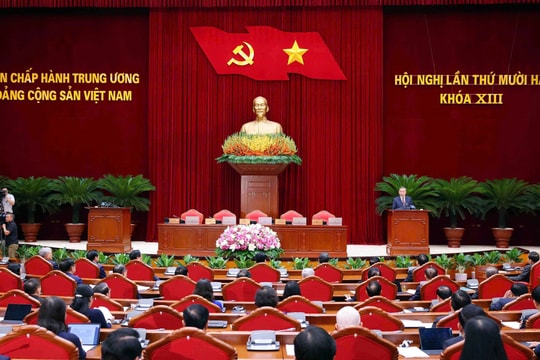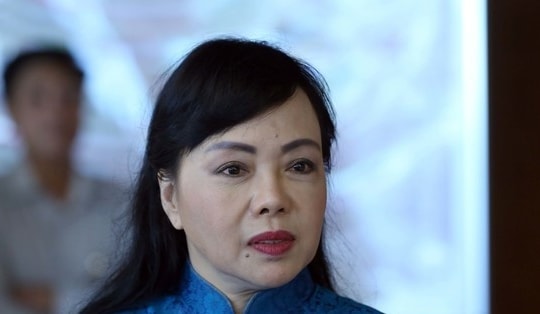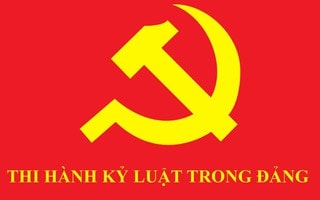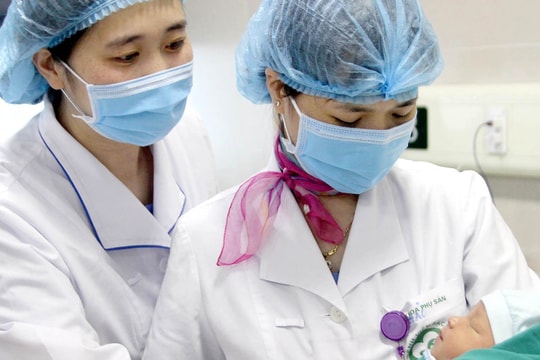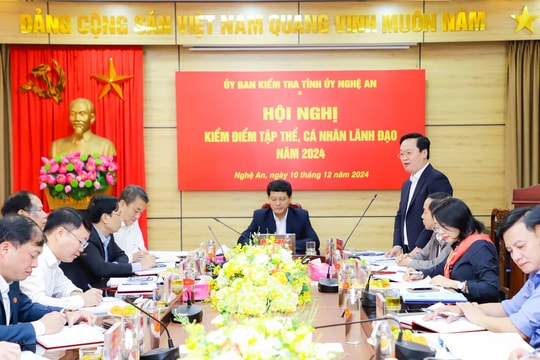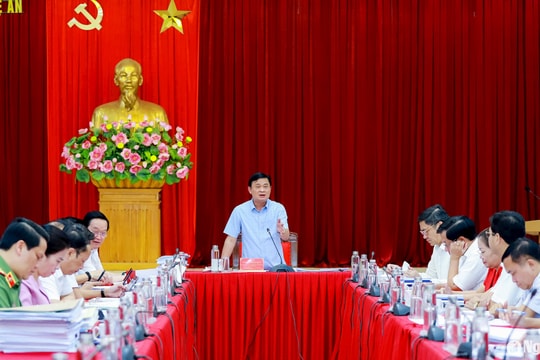The Party has issued synchronous regulations related to personnel work.
Head of the Central Organizing Committee Truong Thi Mai said that the Party has basically issued synchronous regulations related to personnel work such as: title standards; planning; training, fostering, especially political theory training; rotation...
Issue synchronous regulations related to personnel work
2021 is the first year of implementing the Resolution of the 13th National Party Congress. To successfully implement the goals and tasks set out in the Resolution of the National Party Congress, one of the key steps that needs to be implemented is to improve the quality of the staff, focusing on senior officials, key officials at all levels, sectors, and heads of agencies and units.
To prepare well for this key stage, our Party has issued many very important documents on personnel work, which are of great significance for the reform and restructuring of the contingent of cadres, civil servants and public employees, such as: Resolution No. 39 (2015) on streamlining the payroll and restructuring the contingent of cadres, civil servants and public employees; Resolution No. 26 (2018) on focusing on building a strategic contingent with sufficient qualities, capacity and prestige, equal to the task; Regulation No. 205 (2019) on controlling power in personnel work and preventing the abuse of power and position...
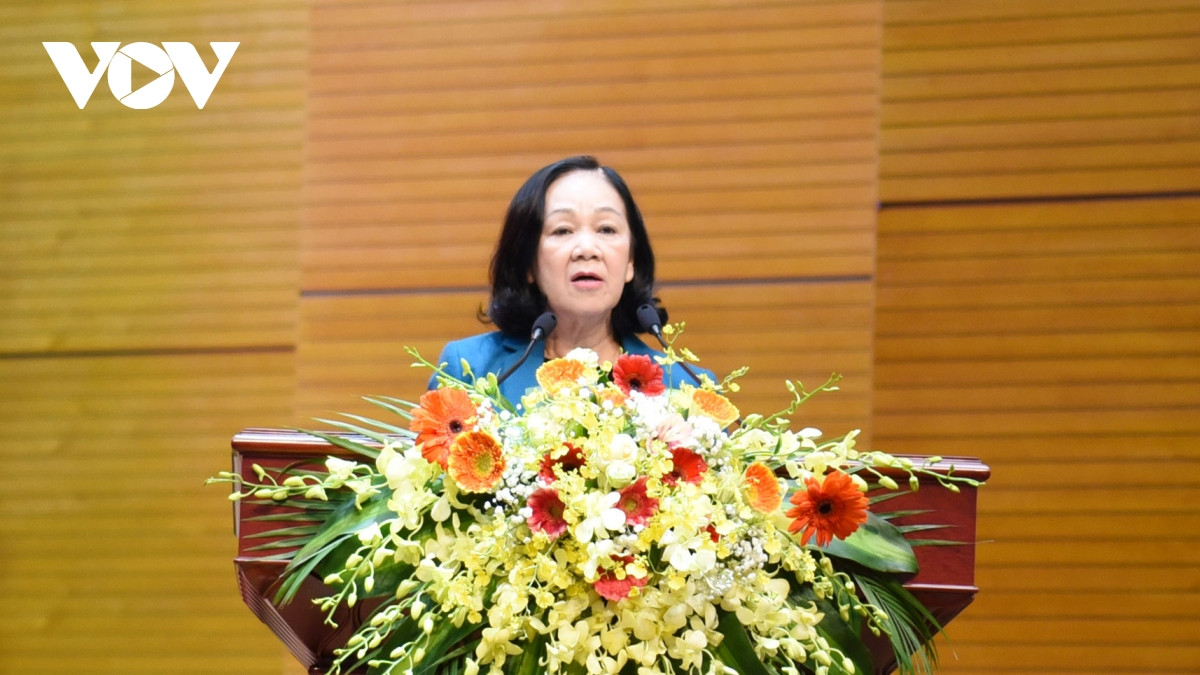 |
| Head of the Central Organizing Committee Truong Thi Mai. |
Speaking at the recent conference summarizing the Party organization and building work in 2021, Head of the Central Organization Committee Truong Thi Mai said that the Party has basically issued synchronous regulations related to personnel work such as: title standards; planning; training, fostering, especially political theory training; decentralization of management and appointment, introduction of candidates; rotation; evaluation; taking a vote of confidence; dismissal, resignation without waiting for the end of the term or appointment period...
“The issuance of these regulations has concretized the Party's viewpoints and goals regarding personnel work, creating proactiveness, strict implementation and convenience for Party committees and organizations at all levels to organize implementation. The implementation process has achieved positive results, but it is necessary to continue to evaluate, review, amend and supplement to meet the requirements of the new situation,” said Ms. Truong Thi Mai.
In order to build a team of cadres at all levels to meet the requirements, grassroots Party committees have specified, adjusted and supplemented according to the regulations and instructions of the Central Government and in accordance with local practices on cadre work.
As in Hau Giang, in the strategic orientation for socio-economic development in the 2021-2030 period with the goal of becoming a province with a fairly developed level, the province identified the biggest challenge as the quality of its staff, especially key leaders at all levels.
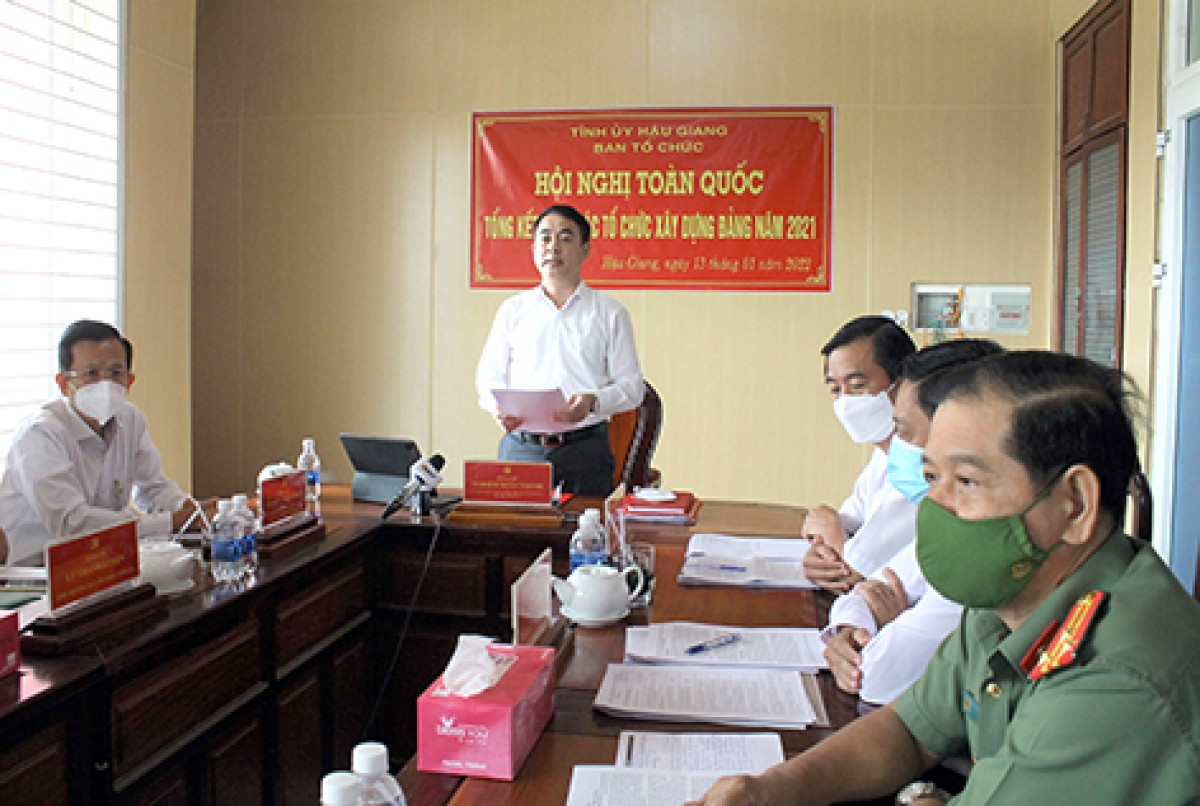 Mr. Nghiem Xuan Thanh - Secretary of Hau Giang Provincial Party Committee. (standing and speaking, photo: Hau Giang Newspaper) Mr. Nghiem Xuan Thanh - Secretary of Hau Giang Provincial Party Committee. (standing and speaking, photo: Hau Giang Newspaper) |
To implement the above strategic breakthrough, according to Mr. Nghiem Xuan Thanh, Hau Giang Provincial Party Committee has approved a project to improve the quality of cadres, especially key leaders at all levels; The project focuses on a system of synchronous solutions, ensuring connectivity between stages in cadre work and focusing on 5 groups of solutions.
Focusing on promoting streamlining of staff, improving the quality and efficiency of recruitment; innovating the content, methods, and procedures for assigning tasks and the criteria for scoring and evaluating staff.
Specifically, Hau Giang Provincial Party Committee has issued regulations on a set of criteria for evaluating and classifying the quality of cadres and civil servants in the province, quantifying them by a scale of points for specific work products according to job title groups and positions, dividing the authority into two levels in assigning tasks and evaluating and classifying them. In evaluating and commenting on the qualities and capacities of cadres, the results of completing assigned tasks are taken as the main measure, linked to specific products. Publicize the results of performing tasks and the annual scoring level for cadres and party members at agencies and units to monitor.
Besides, Hau Giang promotes training and fostering of cadres, linking planning with training and fostering of cadres; innovating and improving the quality in the process of appointing and reappointing cadres.
“Hau Giang identifies investment in building a contingent of cadres as an investment for long-term and sustainable development. Improving the quality of the contingent of cadres, especially key leaders at all levels with strong political will, qualities, qualifications, and capacity, meeting the requirements of the task is a strategic breakthrough in the work of building the Party, the political system and socio-economic development of the province in the new development period, contributing to the successful implementation of the Resolution of the 14th Hau Giang Provincial Party Congress and the Resolution of the 13th National Party Congress” – Mr. Nghiem Xuan Thanh said.
Appointed and mobilized officials must have products participating in the prevention and control of Covid-19.
As for Ho Chi Minh City, Ms. Nguyen Thi Le - Deputy Secretary of the City Party Committee, Chairwoman of the City People's Council said that the Standing Committee of the City Party Committee has directed agencies and units to amend, supplement and complete the Project on job positions, job position competency framework, job position descriptions to ensure scientific compliance with the functions, tasks and operational purposes of each unit; appraise and approve the Project, on that basis, restructure the team of cadres, civil servants and public employees according to professional titles, job positions and training levels in accordance with functions and tasks, ensuring appropriate structure. Issue a list of job positions and job position descriptions for 9 sectors under the Party and socio-political organizations of the city.
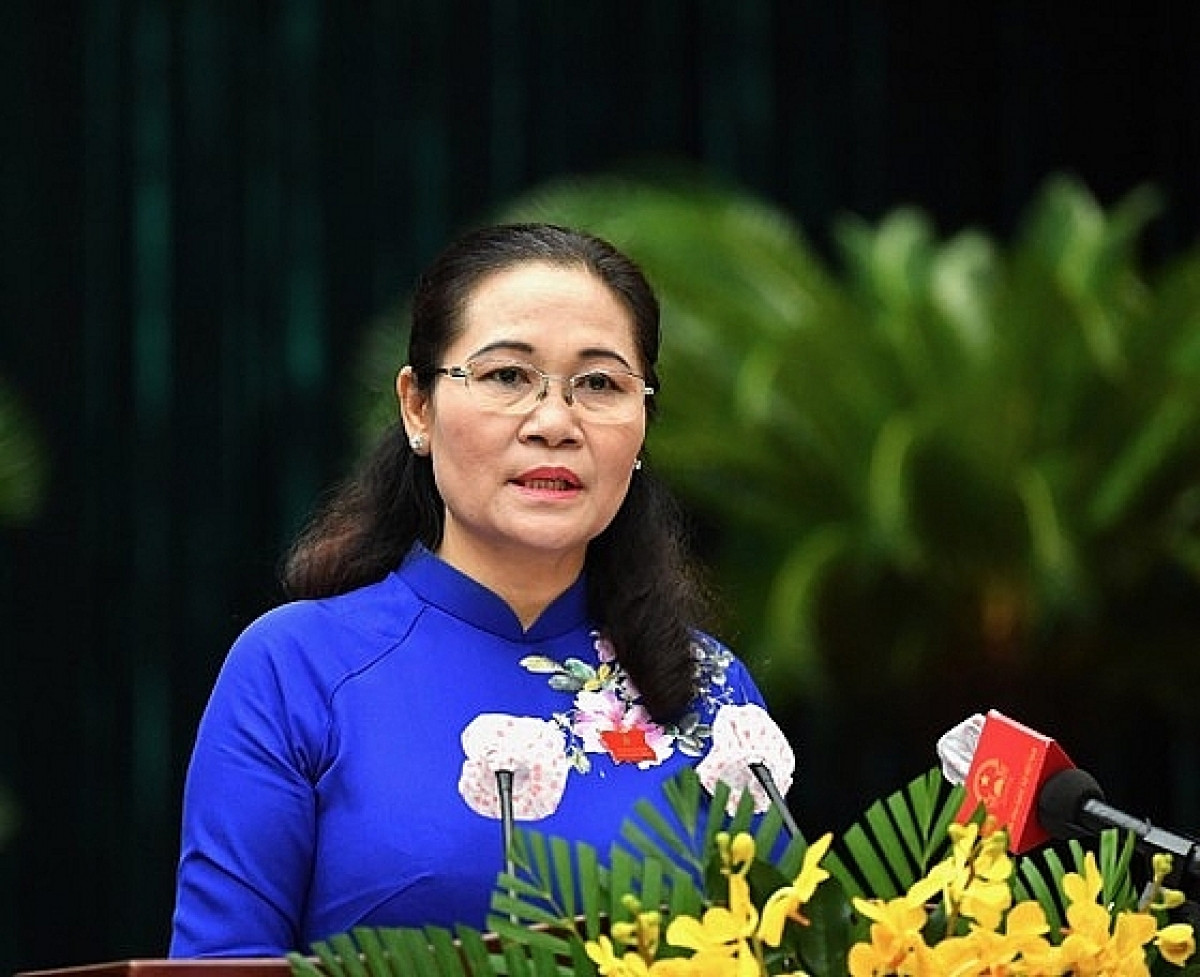 |
| Ms. Nguyen Thi Le - Deputy Secretary of the City Party Committee, Chairwoman of the People's Council of Ho Chi Minh City. |
According to Ms. Nguyen Thi Le, the Standing Committee of the Ho Chi Minh City Party Committee has directed the implementation of the Resolution of the 7th Central Conference (12th term) on focusing on building a contingent of cadres at all levels, especially strategic-level cadres with sufficient qualities, capacity and prestige to match the tasks. Specify a number of implementation contents to effectively carry out tasks and solutions for the roadmap determined for each stage, aiming to improve the quality of the contingent of cadres, civil servants, and the political system of the city, especially the contingent of leaders and managers at all levels. Implement regulations on supervising cadres, party members and cadre work according to the Party's regulations and the State's laws; review, adjust and supplement regulations, rules and procedures on cadre work.
“It is worth noting that, in personnel work such as mobilization, planning, and appointment, candidates must have reports on their participation in the prevention and control of the Covid-19 epidemic, participation in helping people respond to the epidemic, or positions for the People's Council to elect, candidates must develop and present an action program before the People's Council delegates vote. Directing to promote the training and fostering of leaders and managers at all levels of the city, promptly completing key positions of the city, a number of localities, agencies, and units to ensure the requirements of leadership and direction in the prevention and control of the Covid-19 epidemic" - Ms. Nguyen Thi Le said.
According to Head of the Central Organizing Committee Truong Thi Mai, in 2022, the Politburo and the Secretariat will continue to consider and decide on a number of important issues on Party organization and building work such as: rotation of cadres; internal political protection; decentralization of management, appointment and introduction of cadres to run for election; cadre training and fostering work; 5-year review of the implementation of Resolution 18 and a number of pilot models according to Resolution 18; taking a vote of confidence in the Party; a number of mechanisms and policies according to Conclusion 21 such as piloting a number of policies: heads select and introduce cadres in the planning for election and appointment as deputies; Party committee secretaries introduce standing committee members for election; delegate authority to heads to appoint cadres in the planning; dismiss direct subordinate heads; summarize the pilot recruitment and appointment of leaders and managers at the department, office, and division levels... to continue to create synchronization and innovation in Party organization and building work./.

